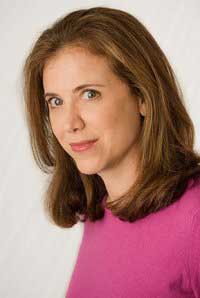(RNS) During the recent 20th anniversary of the Bosnian war, I reread a court-approved email I had received from Radovan Karadzic, the Bosnian Serb leader charged with genocide.
The Serbs “fought for freedom without denying the rights of others,” wrote Karadzic, a man his lawyer describes as a deeply religious Orthodox Christian who had practiced psychiatry in Sarajevo.
In 2010, I traveled to The Hague to witness Karadzic’s trial with a very different psychiatrist, Esad Boskailo, who had spent a year in six Bosnian concentration camps. Only bulletproof glass separated the two middle-aged psychiatrists, each over six-feet tall: Karadzic with his famous pompadour, and Boskailo with spiked-gray hair.
Boskailo is a Bosnian Muslim and I am a Jew, but when we decided to write a book together about finding meaning after terror, we were determined to avoid easy answers about suffering and religious language that fueled men like Karadzic.
We began to think we might have something to say to people who defined religion more broadly and who faced the kind of trauma that outlives anniversaries.
Boskailo, whose family had come to the U.S. as refugees, had been inspired by reading psychiatrist Viktor Frankl's account of the Nazi concentration camps, “Man’s Search for Meaning.”
Boskailo couldn't help being struck by the similarity of all camps and the modes of torture perfected by each generation. It was as if Frankl had been with Boskailo at the camps when bullets flew through metal hangers and heard men cry at night.
“I was convinced that survivors needed to address the kind of questions of meaning raised by Frankl,” said Boskailo, who studied psychiatry after the war. “They needed a reason to live, and I wanted to help them find that reason.”
Boskailo believed that therapists needed to help survivors recall what had brought them happiness in the past, acknowledge the magnitude of their losses, and find meaning that transcended horror. For some patients, that reason could be raising a family, writing a book or testifying in court.
Particularly resilient survivors, Boskailo knew, might never need therapy to find meaning. Others thrive in community-based programs. Still others, such as those who suffer from chronic nightmares and flashbacks, may require years of therapy to regain some semblance of a normal life, including veterans from Iraq and Afghanistan.
Boskailo told me his own story of returning in fragments, and I asked all kinds of questions: Was the wall that surrounded the camp made of bricks? Was there a bathroom? Who emptied the can?
The interviews were easier when Boskailo, now an associate professor of psychiatry at the University of Arizona, talked of survivors he saw in his hospital trauma clinic in Phoenix. He described men and women who felt betrayed by the neighbors they once called friends. He told of a housebound 45-year-old survivor of the Srebrenica massacre who was so distraught she ate little, rarely slept and almost never spoke.
“I’m from Sreberenica,” she said after months of therapy. “You know I lost my father, my husband, my brother and uncle. You Already know what happened.”
Then there was the 50-year-old unemployed Iraqi veteran, who used to spend his days at home counting his breaths.
“Doctor, you have to find me a pill,” he begged Boskailo.
“I have no pill to take away loss,” Boskailo told him.
Over time, the man recounted his losses: his wife, his friends, his country, his work, his Orthodox religious community. Boskailo avoided imposing beliefs on patients, many of whom had been harmed by soldiers who fought in the name of religion and by leaders offering pat answers about God’s will.
But in this case, Boskailo knew that his patient’s faith could sustain him and help him imagine a future. So Boskailo assisted the man find his first job in decades — packing boxes in a factory — and he arranged for transportation to the local Orthodox Church.
Boskailo had finished his own therapy, but when we first talked about his experience in the camps, he had a panic attack. He cried when reading a chapter. And while watching Karadzic’s trial at The Hague, Boskailo stormed out, as if to say he had enough of this business of remembering.
When the final draft was done three years after we started, Boskailo had a record of his life and a commitment to patients that no war criminal could take away — something Frankl described in religious terms as a “vocation or mission.”
“I don’t imagine, anymore, that I will be in the middle of a conversation and find myself back in the camps,” Boskailo said. “The book was about the beauty of healing, this time my own. “
(Julia Lieblich is the author, with Esad Boskailo, of the new book, “Wounded I Am More Awake: Finding Meaning After Terror.” A longtime religion writer, she is an assistant professor of journalism at Loyola University Chicago.)
KRE/AMB LIEBLICH





